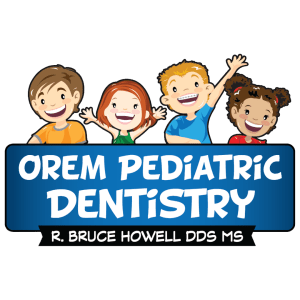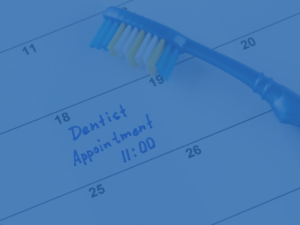Preventative dental care is the phrase we use to describe the list of techniques we can use and teach our children that will help take care of their teeth. By establishing good habits early, we can help more people live better, healthier lives.
To prevent cavities, I recommend using a combination of proper oral care, a diet that is free from excessive amounts of sugar and carbohydrates, regular dental visits (for professional cleanings and to ensure there are no major issues that can get worse over time), and developing and maintaining healthy habits.
This guide will cover dental care for children of all ages – from infants to young teens.
Before we get started, I want to cover what I consider to be proper oral care techniques, and I’ll follow up with my recommendations that apply to each child by age.
Part One: General Oral Care and Prevention Recommendations
Brushing Techniques:
- Brush twice or three times per day: Encourage brushing in the morning and before bed. Whenever possible, encourage brushing after meals as well
- Use the right amount of toothpaste: For children up to 6 years of age, a pea-sized amount is recommended. For older kids, two peas
- Brush thoroughly: Teach children to brush all surfaces of their teeth, including fronts, backs, and tops – all surfaces
- Use gentle, circular motions and be relatively gentle. The goal is to clean and remove bacteria
Flossing Techniques:
- Begin early: Start flossing as soon as your child has two teeth that touch
- Floss daily: Ideally before bedtime
- Demonstrate proper techniques: Show children how to gently slide the floss between their teeth and curve it around each tooth
Diet and Nutrition:
Certain foods can increase the risk of cavities, so it’s best to avoid or limit their consumption.
Foods to Limit:
- Sugary snacks and drinks such as candies, cookies, soda, and juice
- Foods high in carbohydrates such as oatmeal, bread, and cereal
- Highly refined foods such as fast or frozen food
Healthy Alternatives:
- Fresh fruits and vegetables: These can help stimulate saliva production, which neutralizes acids
- Dairy products: Such as cheese, milk, and yogurt contain calcium and phosphates that can strengthen tooth enamel
- Water which helps to keep one hydrated and wash away food particles and bacteria
Regular Dental Visits:
Regular dental check-ups are vital for preventing cavities and addressing potential issues early. The American Dental Association (ADA) recommends that children see a dentist by their first birthday and continue with regular visits every six months.
Benefits of Regular Dental Visits:
- Professional cleanings: Dentists can remove plaque and tartar that brushing and flossing miss
- Fluoride treatments: These treatments strengthen enamel and help prevent cavities
- Early detection: Identifying early signs of decay allows for intervention before cavities develop
Part Two: Infant Oral Care
Before an infant’s teeth begin to emerge from their gums, you can begin their oral care. Cleaning an infant’s gums with a soft, damp cloth after feedings can help establish good habits early on. Once the first tooth appears, typically around six months of age, parents should start brushing with a soft-bristled toothbrush and a tiny smear of toothpaste.
Tips for Infant Oral Care:
- Use a soft-bristled toothbrush that is designed for infants, with soft bristles and a small head
- Introduce toothpaste: A small smear (the size of a grain of rice) can help protect emerging teeth
- Avoid sugary drinks: Stick to breast milk, formula, and water to prevent early childhood cavities
Again, we are trying to establish good habits. Caring for one’s teeth is always a good habit.
Part Three: Toddler’s Oral Care
From their first birthday to the age of three are toddlers. There are a few techniques that I recommend for children at this stage. Again, we’re aiming for the establishment of good habits. Remember, this is a critical stage in the development of teeth. They are particularly vulnerable to decay and the enamel has not fully hardened.
It’s important to establish solid, reliable and frequent habits at this stage.
Tips for Toddler Oral Care:
- Using a small, soft-bristled toothbrush, have your child mimic you while you show them how to brush their teeth, covering all surfaces of each tooth thoroughly
- Use a small amount of toothpaste – about the size of a pea is recommended
- Have toddlers brush their teeth in a circular motion and cover all surfaces of each tooth
- Demonstrate and have the toddler practice proper flossing technique which involves cleaning between each tooth and wrapping the floss around the corner of each tooth to dislodge food particulates
- Rinse the mouth for 10 seconds after brushing to cleanse the mouth
- Rinse the mouth with a light or children’s mouthwash for 60 seconds, then rinse with water for 30 seconds
Part Four: Dental Visits
There’s a very good reason that the ADA recommends regular visits to the dentist. Here’s what we know: clean teeth don’t get cavities. Seems simple, but that’s the #1 reason that dentists and parents have to keep reminding everyone to visit their dentist every six months. It’s important. Your regular dental visit will normally consist of an examination to look for cavities, potential issues, and to thoroughly clean the teeth.
To ensure that your child has a great experience, here are my tips:
- Brush and floss together as a family whenever possible
- Use fun tools: Colorful toothbrushes, engaging timers, and dental apps can make brushing more enjoyable
- Reward systems: Sticker charts and other incentives can encourage consistency
Preventing cavities in children involves a combination of good oral hygiene practices, a healthy diet, and regular dental visits. By teaching these habits early, parents can help their children maintain healthy, cavity-free smiles.
Remember, the foundation for good oral health starts at home and is reinforced by professional care and guidance. For more detailed advice and resources, visiting a trusted pediatric dentist can help you get any questions you may have answered and help you develop long-lasting or lifetime oral care habits for you and your family.






